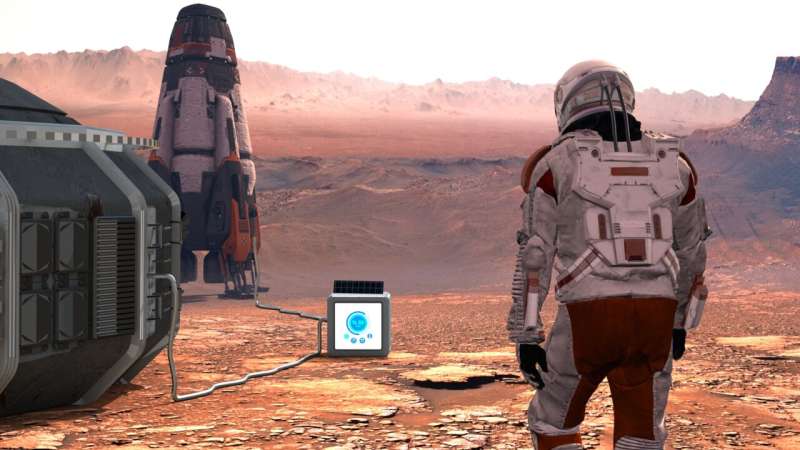Turning astronaut waste into fuel on Mars

To survive on Mars will mean maximizing use of all available resources. A team from Spanish technological center Tekniker is working on a system that uses sunlight to produce fuel from astronaut wastewater.
Borja Pozo from Tekniker explains: "We aim to make the first reactor to produce space propellant on Mars using the planet's air, which is 95% carbon dioxide. The reactor will be powered by sunlight, and astronauts' graywater will be used to help in the production of the propellant."
The "photoelectrochemical" system, relying on high-efficiency catalytic materials to produce hydrocarbons such as methane as well as carbon monoxide or alcohols from atmospheric CO2 plus wastewater. In the process it will also detoxify the water used—serving as a recycling method.
Jean-Christophe Berton, ESA technical officer for the project, adds: "The outcome of this activity could provide ESA with valuable input on the production of propellant on Mars or to power remote sites like ground stations on Earth. It could also potentially provide input on how to decarbonize our own atmosphere."
Supported through the Discovery element of ESA's Basic Activities, the project was initiated through ESA's Open Space Innovation Platform, seeking out promising new ideas for space. Find out more about this and other recent OSIP activities here.
Provided by European Space Agency



















